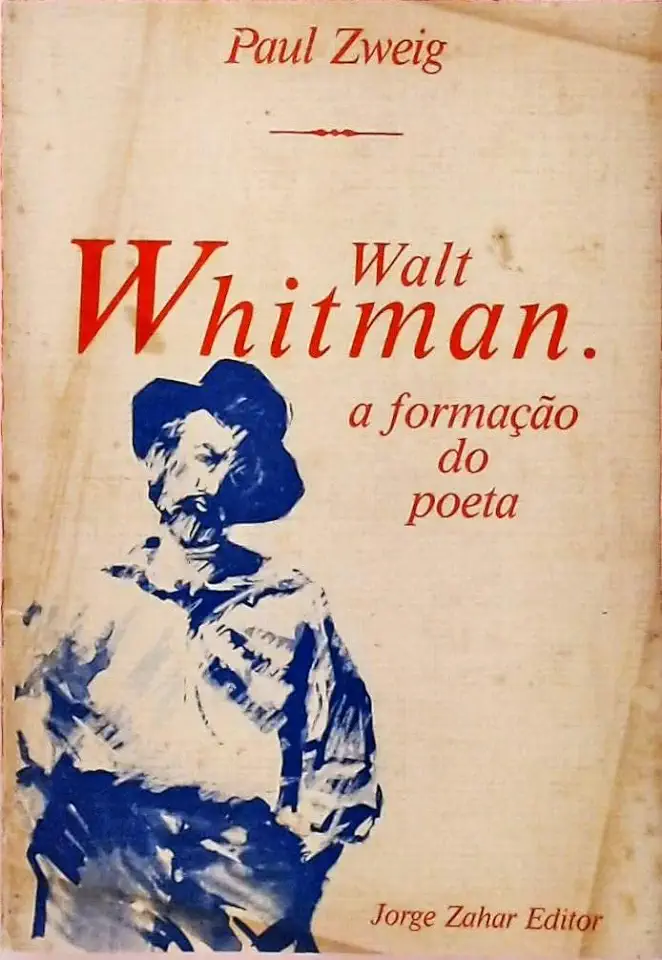
Walt Whitman: The Making of the Poet - Paul Zweig
Walt Whitman: The Making of the Poet by Paul Zweig
A Masterful Biography of the Father of American Poetry
In his groundbreaking biography, Paul Zweig delves into the life and work of Walt Whitman, the towering figure of American poetry. Zweig paints a vivid portrait of Whitman's early years, his struggles as a young writer, and his eventual rise to prominence as one of the most influential poets of all time.
Whitman's Early Life and Influences
Walt Whitman was born on May 31, 1819, in West Hills, Long Island. His father, Walter Whitman, Sr., was a farmer and carpenter, while his mother, Louisa Van Velsor Whitman, was a homemaker. Whitman grew up in a large family and had a close relationship with his siblings.
From an early age, Whitman showed a love for reading and writing. He was particularly drawn to the works of Shakespeare, Homer, and the Bible. Whitman also developed a deep appreciation for nature, which would later become a central theme in his poetry.
Whitman's Struggles as a Young Writer
After leaving school at the age of 11, Whitman worked a variety of jobs, including teaching, carpentry, and journalism. He also began to write poetry, but his early work was largely derivative and unoriginal.
In 1842, Whitman published his first book, a temperance novel titled Franklin Evans; or, The Inebriate. The novel was a commercial failure, and Whitman was discouraged by its reception. However, he continued to write poetry, and in 1855, he published his groundbreaking collection, Leaves of Grass.
Leaves of Grass: A Revolutionary Work of Poetry
Leaves of Grass was a radical departure from traditional poetry. Whitman's free verse style, his use of colloquial language, and his celebration of the common man were all seen as shocking and unconventional. The book was met with mixed reviews, but it also attracted a small but devoted following.
Over the years, Leaves of Grass went through several revisions and additions. Whitman continued to work on the book until his death in 1892. Today, Leaves of Grass is considered one of the most important works of American poetry and is widely read and studied around the world.
Whitman's Later Years and Legacy
After the publication of Leaves of Grass, Whitman continued to write poetry and prose. He also became involved in the abolitionist movement and the Civil War. Whitman's experiences during the war had a profound impact on his work, and he wrote some of his most powerful poems about the war, including "O Captain! My Captain!" and "When Lilacs Last in the Dooryard Bloom'd."
In his later years, Whitman lived in Camden, New Jersey. He continued to write and publish poetry until his death in 1892. Whitman's work has had a profound influence on American literature and culture. He is considered one of the greatest poets of all time, and his work continues to be read and enjoyed by people around the world.
Why You Should Read Walt Whitman: The Making of the Poet
Paul Zweig's biography of Walt Whitman is a must-read for anyone interested in American poetry and literature. Zweig's masterful storytelling and his deep understanding of Whitman's work make this book a truly unforgettable reading experience.
In Walt Whitman: The Making of the Poet, you will discover the life and work of one of the most important poets of all time. You will learn about Whitman's early struggles, his groundbreaking work, and his lasting legacy. You will also come to appreciate the beauty and power of Whitman's poetry, which continues to inspire and resonate with readers today.
Order Your Copy Today!
Walt Whitman: The Making of the Poet is available now at your favorite bookstore. Order your copy today and start your journey into the world of Walt Whitman, the father of American poetry.